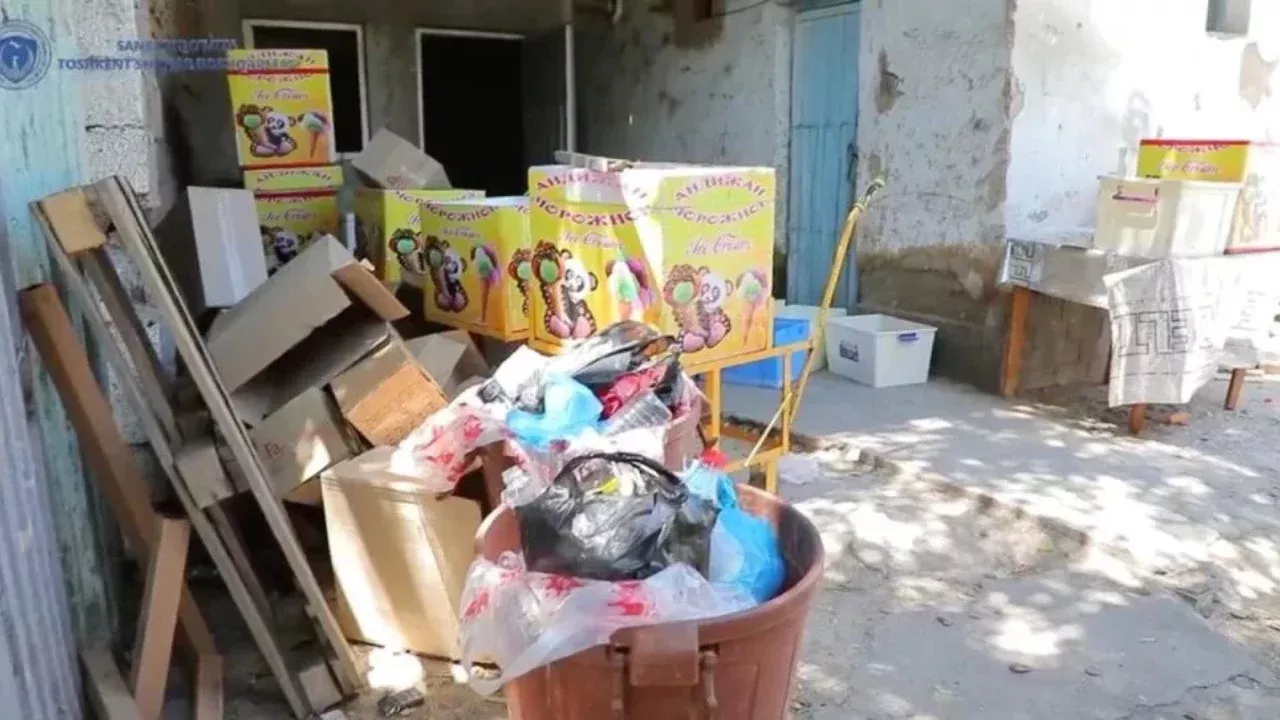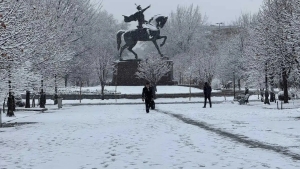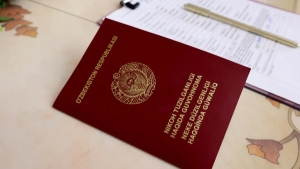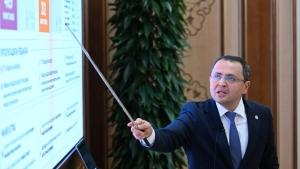
A serious threat to public health has been identified in Tashkent city, and an inspection was carried out by specialists from the sanitary-epidemiological service. This was reported by Zamin.uz.
During the inspection, a batch of ice cream sold under the name "Andijan ice cream," but with questionable origin and composition, was confiscated. It was revealed that this product was prepared without an official license and in violation of sanitary regulations.
In a raid conducted in the Shaykhontokhur district, over 220 kilograms of ice cream stored under unsanitary conditions were found. The containers of the product were moldy, and the ice cream inside had been frozen and thawed multiple times, compromising its chemical and microbiological composition.
Most alarmingly, larvae and flies were found in the ice cream. Such a situation poses a serious health risk, potentially leading to poisoning and infectious diseases, including staphylococcus or intestinal infections.
Experts emphasize that the "Andijan ice cream" brand has been distributed in various regions since 2021, but it has no connection to Andijan region. This name was chosen solely to mislead consumers.
Although the sanitary-epidemiological control authorities have repeatedly warned and removed such products from sale, some entrepreneurs continue to endanger people's lives for profit. The confiscated batch of ice cream has been destroyed, administrative measures are being taken against the sellers, and legal penalties will be applied.
This situation once again demonstrates that the pursuit of cheap products can pose a threat to life. Medical professionals are urging the public not to purchase food products, especially perishable items, from unknown sources, uncertified, and unreliable sales points.
This affects not only personal health but also the health of loved ones. Every citizen must be active in protecting their health.
If you encounter suspicious products or sales points, reporting to the relevant authorities is your civic duty and one of the important steps in preserving public health.







